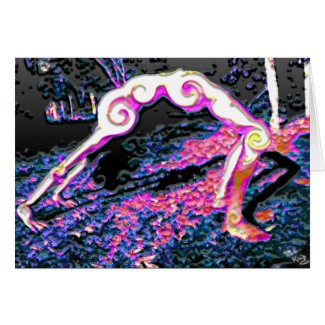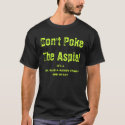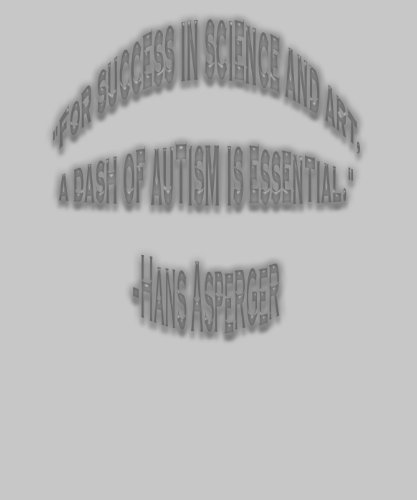In fact, I would have looked almost exactly like this as a child as I was learning to draw. It was my grand obsession and I have little awareness of my surroundings or much concern about how I look. Furthermore, I was profoundly nearsighted. Alas, no longer - I had cataract surgery and now my cheap fixed focus lenses allow me to navigate without glasses. But I can't see in the way I used to without a binocular microscope. Anyway, I do have the right focal length for a computer screen.
I've always been an artist, it's literally how I think. What I can discern of Wawrow's process is eerily similar to mine. If I used crayons much at all, I would look exactly like this. Like him, I never refer to a source or didn't until I started making art directly from photos. He moves the way I did before taking up martial arts, as if a body was a not terribly convenient means of moving a head and hands from one place to another.
Looking at his quality of line, I note that he has similar impairments with fine motor control, and uses a similar variety of dodges. For him, it's crayons - because of the inherent imprecision and the blending qualities of the professional crayons he uses. For me, it's the use of watercolor pencils, or earlier, pencil crayons. Earlier than that, as a child, I used ez-erase paper and number two pencil as well as a white eraser for both erasing and blending.
 Now I use a computer, both for original work and for works that are done, Warhol-like, as variations on a photograph. I of course was working to overcome a disability - but the disability was not my appearance as I worked, and that's the point that struck me as I watched this video. That, and the fact that his parents chose to concentrate on celebrating what he could do and not stressing over what he could not do. What I would have given for a moment of celebration as is shown when he completes a picture!
Now I use a computer, both for original work and for works that are done, Warhol-like, as variations on a photograph. I of course was working to overcome a disability - but the disability was not my appearance as I worked, and that's the point that struck me as I watched this video. That, and the fact that his parents chose to concentrate on celebrating what he could do and not stressing over what he could not do. What I would have given for a moment of celebration as is shown when he completes a picture!Instead, my art was seen as simply another form of "escapism" and a dangerous reliance upon "imagination," a thing that would be no help in "the real world."
Ironically enough, it's that very capability that would have set me apart; that would have been a real asset to me in finding my own way had it been celebrated and encouraged. It's only now that it's become clear to me how much of our civilization depends on the relatively few people
 who really can dive into their imaginations and come up with things that are needed. Of course, we don't think of these people who do this as being "disabled." Geeks, perhaps. Or we say, "well, you understand, he's an engineer" as if that explained why that person lacks social graces and all but rudimentary hygiene.
who really can dive into their imaginations and come up with things that are needed. Of course, we don't think of these people who do this as being "disabled." Geeks, perhaps. Or we say, "well, you understand, he's an engineer" as if that explained why that person lacks social graces and all but rudimentary hygiene. For myself, I've always felt that if you can notice such trivia as hunger or anything less than a true "potty emergency," you aren't concentrating, and I've always been completely baffled by the inability of those who consider themselves "normal" to cope with the idea that one can be utterly unaware of their presence.
For myself, I've always felt that if you can notice such trivia as hunger or anything less than a true "potty emergency," you aren't concentrating, and I've always been completely baffled by the inability of those who consider themselves "normal" to cope with the idea that one can be utterly unaware of their presence.I could ascribe my parent's inability or unwillingness to cope with this trait - much less value it - to the fact that both were ... to use my broad technical vocabulary ... fuckin' nuts.
But nuts though they were, it seems to be a very common belief among the neurotypical that if I fail to notice them, on some visceral level, they feel they don't exist.
I had to isolate and hide just to get time to do a drawing, and I had to learn to work very quickly indeed - so many techniques which I loved were abandoned because I would never be permitted the time it took to complete a work.
I now suffer from a learned impatience and I feel shame for "wasting time" any time I fall out of contact with temporal reality. It's only been lately that I've started to respect my process and the way my mind works - and in part, this respect comes from seeing how people who, apparently suffering from greater degrees of autism, are able to function better as they aren't wading through spools of "old tapes" to get anywhere.
I am starting to dislike the term "Neurotypical." First, the term tends to be used in a bigoted way by all "sides." Second, it contains the presupposition that there is, in fact, some sort of standard wetware configuration, and I've come to suspect that such a proposition is not only unwarranted, but that it could easily be disproved - if the implications of the idea that there is no true "normal" did not scare the crap out of everyone who can somehow manage to get by without being singled out as "abnormal."
But study history for five minutes and you will find that there are damn few people who have achieved any notice that were not some variety of whackadoodle. "Normal" people seem to leave no trace of passage themselves, but they do strongly influence those who will have no choice in being some variety of exceptional.
I could never have been normal. But I could have been a cause of pride instead of an object of shame - that was the choice of my parents and equally, the culture I grew up in. Fortunately, I had Science Fiction and various other counter-examples of contexts both real and imaginary where things made sense and people like me would be normal, while the sorts of people I saw myself surrounded by were... not.
Yes, I have a barely noticeable tendency toward arrogance. But with a touch of lime and a sense of humor, many find it to be a charming accent to the confusion that is me.
Header credit: Plain Asperger T-Shirt by webcarve Get this custom shirt at Zazzle
Don't Poke The Aspie! by webcarve Get this custom shirt at Zazzle

No comments:
Post a Comment